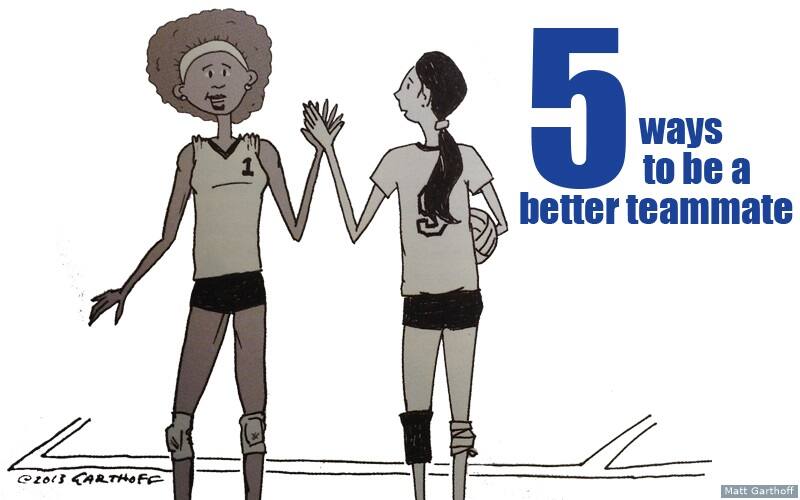
Originally published in VolleyballUSA, Summer 2013 issue
Top coaches and accomplished players all agree that a big key to success on the volleyball court is establishing yourself as a positive influence on your teammates. Here’s what five experts say about how you can make that happen.
David Kniffin
University of California-Irvine Men’s Volleyball Head Coach
Acknowledge that life transcends volleyball. I have yet to meet a player who has mastered the skill of “checking” their emotional baggage at the door. Sometimes your teammates will be disengaged, frustrated or seemingly unable to execute even simple skills. Do they not care? Are there other factors at play? Have a sense of what is going on in the life of your teammates, then talk about your expectations and desires for practices/matches. Doing so should build trust, a means of honor emotions, while also honoring limited training time.
Jeff Conover
Coach for 2012 Olympic beach silver medalists Jen Kessy and April Ross
The best way to be an effective partner in the beach game is to be great at all the little things when you are not the direct serving target. Making things easiest for your partner is far more effective than trying to take over the entire match yourself. Give your partner great sets, accurate calls, cover their attacks and offer massive amounts of informative feedback on what the other team is doing tactically. In addition, take the reigns with your own defensive/serving schemes on how to best attack your opponent. By doing all of this, you will give your partner the confidence and efficiency to just focus on the task at hand – siding out.
Terry Pettit
Former University of Nebraska Women’s Volleyball Head Coach
The highest compliment that one player can give to another player is to say, “I’m a better player when you are on the court.” When someone says something like that, it isn’t always because of the most obvious reasons: accurate passing or setting that leads to a successful attack. Sometimes it lies with a player’s countenance. One player who consistently plays with strong, confident movements and communication can significantly alter the DNA of a team as it moves from hope to execution.
Lindsey Berg
Three-time U.S. indoor Olympian as a setter, two-time silver medalist
How to be a better teammate seems like a simple question, but there are so many different ways to be a better teammate. What I have learned and practiced throughout my years in the game is communication. Being a better teammate means motivating, trusting, supporting, playing hard at all times. In order to do all of those things effectively, communication is needed. Get to know your teammates. Learn how to talk to them in a way that motivates them and makes them a better player. Be honest, sincere and genuine at all times. Honesty can hurt, but it is necessary to make the team better. With the right tone and sincerity, honest communication has the ability to win games. Learn how to communicate effectively to be a better teammate.
Brian Thornton
Setter, U.S. Men’s National Volleyball Team
You have to do things within yourself and your own personality. I think you have to be yourself. If you can be yourself and play your game, then ultimately people are going to gravitate toward you.

